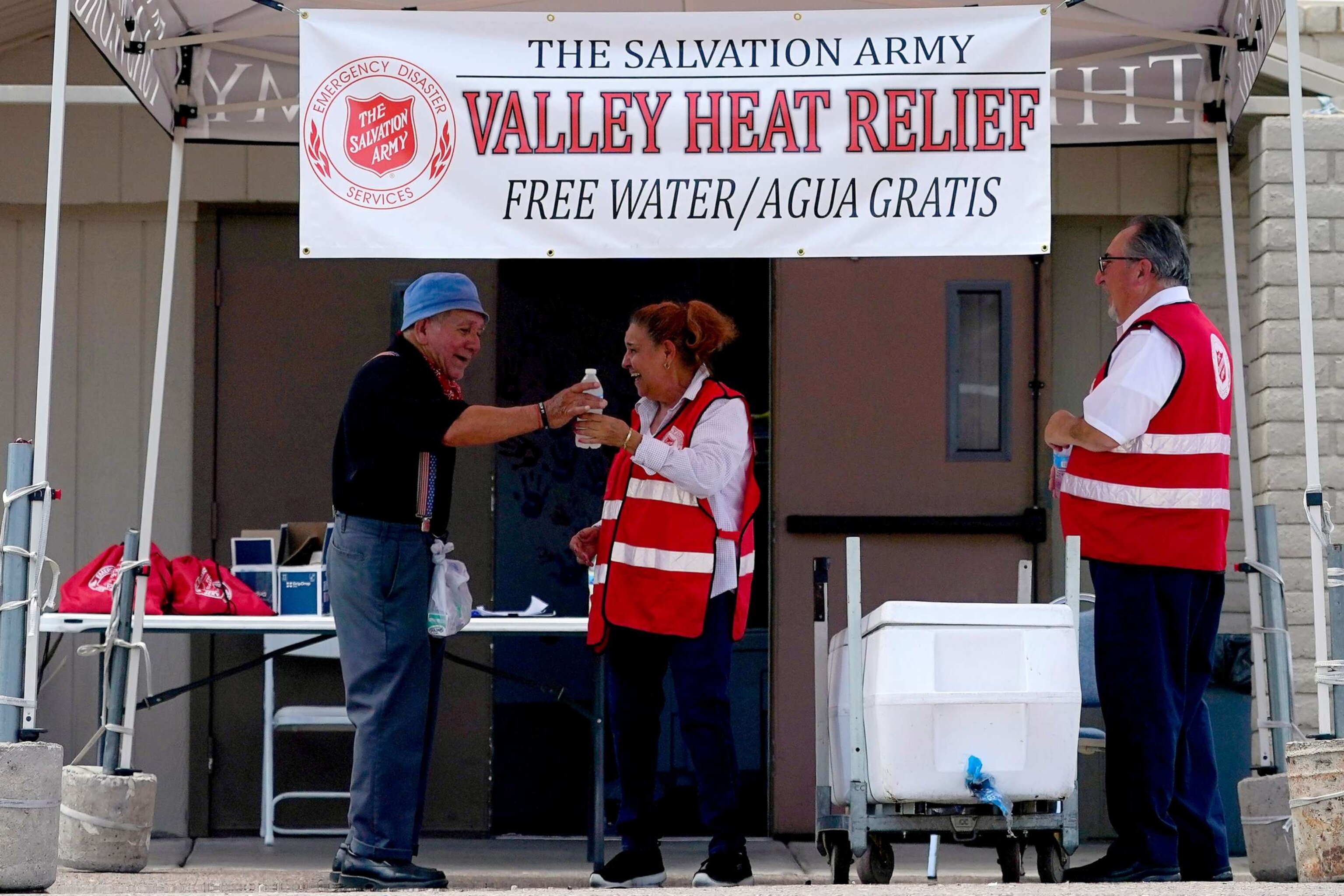How does extreme heat affect mental health?
Experts say it can have "significant impacts" on your mental well-being.
As millions of Americans contend with extreme heat across much of the country, experts tell ABC News that continued exposure to high temperatures can have significant effects on people's mental health.
"It affects things like cognition -- so our ability to think clearly, make decisions, communicate well, take protective actions," Dr. Joshua Morganstein, chair of the American Psychiatric Association's committee on the Psychiatric Dimensions of Disaster, told ABC News. "It also affects things like our ability to sleep and it's been associated with increased rates of and risk for violence -- violence as individuals, violence in groups -- and some studies have found in association with increased risk of suicide."

These effects can happen both amid temperature surges, as much of the nation is seeing now, or in areas where it's more consistently hot, family physician Dr. Beth Oller said.
"People will talk about how they have reduced feelings of joy and happiness and increased amount of stress, anger and fatigue, even with temperatures above 70 degrees," Oller said. "So, we know that once you're talking about temperatures over 90, 100, that these effects are going to be much more pronounced."
Morganstein also noted effects on people with pre-existing conditions, saying, that the American Psychiatric Association considers "patients with serious and persistent mental illness" at an increased risk during periods of extreme heat, as some of the medications used to treat these illnesses may alter a person's ability to regulate their body temperature.
A JAMA Psychiatry study published last year also found that higher temperatures during the warm season were associated with an increase in emergency department visits for mental health conditions.
While suicide rates and emergency department visits are often the metrics pointed to first when discussing the effects of extreme heat because those are "the most severe and the most traumatic," Oller explained that the increase in those metrics also suggests increases in more everyday struggles such as a person's ability to process and react to the world.
"[Extreme heat] affects our ability just to self-function and self-regulate during the day," Oller explained. "And we see these trends across men and women across all ages across different parts of the US. It doesn't just affect one group."

A major warning sign that heat might be affecting your mental health is having trouble sleeping, Morganstein said.
"Insomnia is really one of the most significant public health problems that we have as a society right now," he explained, adding, "When people are hot during the day, if you have, for instance, lower socioeconomic status, you aren't able to afford air conditioning or find your way to a place where you might be able to cool down, or your hot day turns into a hot night — this can certainly affect people's ability to sleep. And poor sleep is associated with all sorts of different types of accidents."
Extreme heat and related lack of sleep may also lead to issues being present and making everyday decisions, such as how and when to stop at a stoplight when driving, he added.
"Our ability to make those decisions in a safe way gets compromised," Morganstein explained. "What's the impact if it happens to one or two people? Well, that's an impact to one or two people, but when there are tens of thousands, hundreds of thousands, or millions of people living with extremes of heat and temperatures that continue to rise, where extremes of heat become more pervasive — these become serious public health problems and have significant consequences for people."
Other warning signs that your mental health is being affected by the heat include increased irritability and frustration, a shorter attention span, delayed memory and recall and taking longer than usual to complete tasks, Oller said.
"Frustration and irritability are probably two of the things that we can recognize the most quickly and, hopefully, hone in on those and recognize something's going on before we get to the point of anger and aggression, or a full out worsening of symptoms."
Experts say that staying out of the heat when possible, taking frequent breaks when being outside is unavoidable and hydrating can help people manage their mental health during heat waves.

Morganstein said that as the world warms and extreme heat becomes more common and persistent, mitigation efforts are important to maintain mental health.
"So, figuring out what people can do to help one another in the interim," Morganstein said. "Whether or not policies change is one thing -- those tend to be much longer-term solutions, but immediate solutions are things that have to do with finding ways to take care of ourselves and take care of the people around us."
While extreme heat can take its toll, Morganstein emphasized there are some positive aspects, such as how being informed may inspire people to check in on one another and help when they think someone might be struggling.
"As we talk about all the difficulties, and we shed light on this as an important subject and the issue of mental health and extremes of heat, and as people become more informed, that allows people to make different decisions," he said. "So that can already be a good thing that comes from a bad situation."
If you are struggling with thoughts of suicide or worried about a friend or loved one, call or text the Suicide & Crisis Lifeline at 988 for free, confidential emotional support 24 hours a day, seven days a week.




